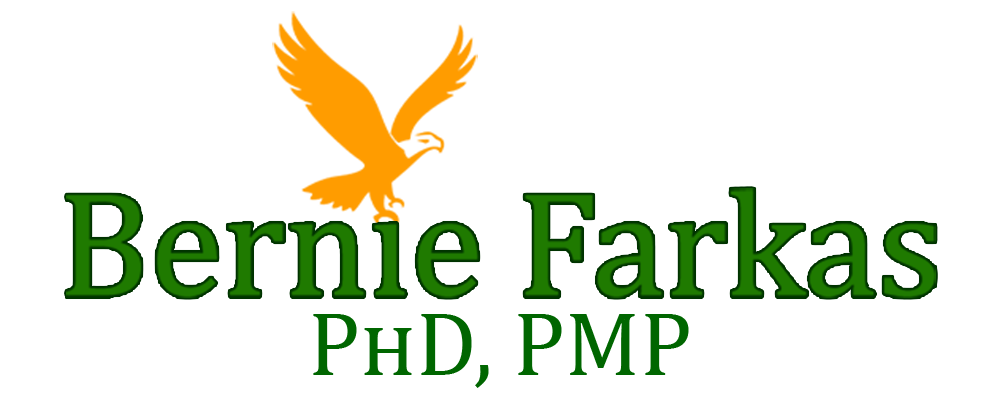Statement of Research Philosophy
As a member of the Virginia Commonwealth University Department of Information Systems and a student of Allen S. Lee, I have developed a mixed methods sensibility; I believe that the appropriate ontology-epistemology is selected based on the research problem being investigated. Ontologically, I view information systems as consisting of positivist and Interpretivist research. While I understand that the discipline refers to this as quantitative and qualitative research, I subscribe to the worldview in which positivist research produces quantitative data and Interpretivist research produces qualitative data; therefore, I prefer to refer to the ontological categories by their philosophy rather than their resultant data. Due to my professional experience and skills, I am inclined towards Interpretivist research, e.g. Action Research, Constructivist, Case Study, etc. This same experience and skills (developer, solution designer, and systems and enterprise architect) also contributes to my Design Science research. Nevertheless, I have been prepared to use positivist methods, e.g. Multivariate Analysis, etc. as necessitated by the research problem under investigation.
The research problems in which I have been engaged fall into two categories: IS processes and ontology. My dissertation is related to IS processes; I am investigating the use of Systems Theory with IT and IS governance. The intent of the dissertation is to apply the concepts espoused by Bertalanffy, Boulding, Ackoff, and others to a social construct (Berger and Luckmann), governance. This is a novel application of Systems Theory within the IS epistemology, where Systems Theory is applied to the application of IT to provide a solution. Further, the application of Alter’s Work System to IT governance demonstrates the application of Work Systems without a significant technology component, i.e. within the realm of IS there are predominantly social systems. Other IS process research is related to a framework to tailor a development methodology to the needs of an organization and a project.
My interest in research in ontology is based on my professional expertise with Information Architecture and Enterprise Content and Records Management. One of the significant issues is the identification of an enterprise taxonomy; this is a significant and often imprecise effort. Presently, ontologies make use of Boolean relationships - either two entities are related or they are not related. I am investigating using fuzzy relationships – two entities have relationship with a weight between 0 and 1. My investigation is seeking to generate an organization’s taxonomy by use of artificial intelligence, fuzzy relationships, ontology inference rules.
Combining both areas of research, I am working with colleagues on a design of a decision support system that uses an ontology to assist an organization or a project team with its risk assessment and planning. The research builds on the risk assessment methodology proposed by Sun et. al. The premise is that an ontology accumulates information from group decision sessions.
The ontology infers risk information that aides the decision support system in the overall risk assessment.
Research
Paper |
Conference/Journal |
Date |
Co-authors |
From IT Governance to IS Governance: Building a Systems Theory for IS Governance and IT Governance |
Dissertation |
Expected May 2017 |
Professor Allen S. Lee (Chair) |
A Conceptual Model: Impact of Usage of Social Media Tools to Enhance Project Management Success |
The European Journal of Management Studies |
Pending Publication |
James Wynne, John Palesis, Bernard Farkas (Virginia Commonwealth University), Chandrashekar Challa (College of Business, Longwood University) |
Adapting Agile Development Methods: Hybridizing Iterations and Agility |
Information and Management |
Under Review |
Bernard Farkas, H. Roland Weistroffer (Virginia Commonwealth University) |
A Framework to Select a Software Development Methodology and Practices |
Presented paper at 13th Annual Symposium on Research in Systems Analysis & Design, Saint Louis, Missouri |
2014 |
Bernard Farkas, H. Roland Weistroffer (Virginia Commonwealth University) |
Social Media and Project Management: The Next Generation Communication Tool to Enhance and Evolving Relationship and Improve Project Success |
Paper presented at the Southeast Decision Sciences Institute Annual Meeting |
2014 |
A. James Wynne, Chandrashekar D. Challa, Bernard Farkas (Virginia Commonwealth University) |
Information Security and Organizational Innovation: exploring the power stasis |
Presented paper at The Annual Security Conference, Las Vegas, Nevada |
2012 |
Bernard Farkas, Gurpreet Dhillon (Virginia Commonwealth University) |
Some Information Systems Research Trends over the Past Decade |
Presented paper at the 15th Southern Association for Information Systems Conference, Atlanta, Georgia |
2012 |
Bernard Farkas, H. Roland Weistroffer (Virginia Commonwealth University) |
Critical Bibliography for Systems Analysis and Design Research |
Presented paper at 10th Annual Symposium on Research in Systems Analysis & Design, Bloomington, Indiana |
2011 |
H. Roland Weistroffer, Muhammad Al-Abdullah, Jaffar Alalwan, Bernard Farkas, Yan Li, Kaveh Mohajeri, Lenin Kumar Syamala (Virginia Commonwealth University) |

